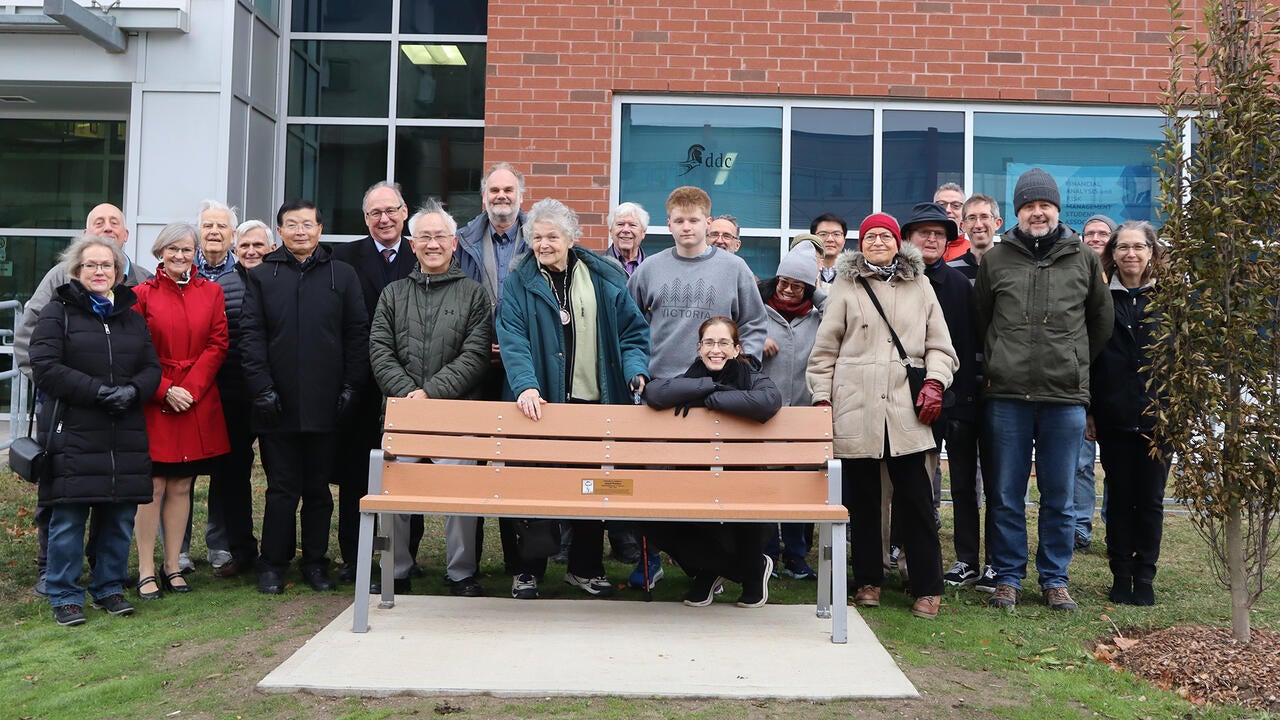
Alum sets up scholarship to help students develop technologies for the social good
Alumni scholarship offers the inaugural recipient the opportunity to work towards changing the world for the better.

Alumni scholarship offers the inaugural recipient the opportunity to work towards changing the world for the better.
By Val Maloney Faculty of EngineeringHana Karim, a first-year Biomedical Engineering student at the University of Waterloo, is passionate about improving maternal health for low-income communities and underprivileged women. She chose her program because of the opportunities for her to develop technology to solve social problems – integrating her love for history and social causes with her love of STEM.
Karim's goal is to develop prenatal checkup equipment technology that can be used at home, improving women's lives without easy access to such medical care by allowing them to complete checkups using the device and an app based on AI to predict the likelihood of treatable maternal diseases.
She hopes that this technology will decrease the number of maternal conditions, specifically preeclampsia, which, if left untreated, is one of the biggest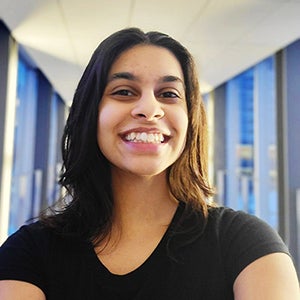 reasons for miscarriages and maternal death in low-income communities. She has recently started working with Waterloo’s GreenHouse social impact incubator to develop the idea and technology.
reasons for miscarriages and maternal death in low-income communities. She has recently started working with Waterloo’s GreenHouse social impact incubator to develop the idea and technology.
Hana Karim, first-year Biomedical Engineering student and inaugural recipient of the Professor Josef Paldus Engineering Scholarship
Karim says that being the inaugural recipient of the Professor Josef Paldus Engineering Scholarship of $20,000 has given her the financial freedom to look anywhere for her co-op placements and "take the leap and go." She has lined up two co-op placements and heads to the University of California San Francisco to work on surface mapping for radiation therapy in the radiation oncology unit this spring. She then plans to go the Aga Khan Development Network in Kenya to work with the maternity department for her next work term.
Inspiring a legacy of giving
Waterloo Engineering and Math alum Barbara Paldus (BASc ’93 Electrical Engineering, BMATH ’93) established the Professor Josef Paldus Engineering Scholarship in memory of her father, a Distinguished Professor Emeritus in Applied Mathematics, and a dedicated teacher and researcher who died of congestive heart failure last January.
Paldus recalls how her father always raved about the diversity in the math department and how his colleagues were there to “collaborate to make things happen as opposed to tripping each other up.”
After high school, Paldus was set on taking a gap year primarily to study piano while taking math courses part-time at Waterloo before attending university in Europe. But a guidance counsellor mix-up landed Paldus in the Waterloo Engineering admissions department instead of math. The engineering admissions rep asked if she had considered engineering and one thing happily led to another, with Paldus starting a double major in engineering and math the next fall.
“I found Waterloo to be incredibly supportive, flexible and enthusiastic,” says Paldus. “If you're looking for a place to find what you want to do, Waterloo can help you discover your passion.”
The time management and networking skills Paldus learned during her time at Waterloo are skills she carries to this day as the founder of multiple companies, most recently the Silicon Valley-based biotech skin tech Codex Labs, and a career that includes 40 U.S. patents and multiple awards for her work.
Paldus developed the Professor Josef Paldus Engineering Scholarship to support a student entering year one of Biomedical Engineering because she says modern medicine gave her more time with her father.
“Modern medicine probably gave him an extra five to six years of good life,” says Paldus. “And so, having gone through the loss of my father, I want this scholarship to help people develop technologies that will improve the lives of those living with terminal illnesses and chronic diseases, and help manage that end-of-life stage in the most comfortable way possible. I wanted to create an award so that Waterloo could attract the best and brightest to Biomedical Engineering.”
Karim hopes to follow the interdisciplinary example set by Paldus in her graduate studies to complete a double major in medicine and law. She also shares Paldus’ love of music and is able to continue practicing piano more seriously while studying thanks to the financial flexibility the scholarship has afforded her.
Featured image: Barbara Paldus (middle, black jacket) with family and friends at the unveiling of a memorial bench and tree for her father, Professor Josef Paldus, in November 2023.
If you would like to establish a scholarship to support a graduate or undergraduate student, please contact Stephanie Osborne. Or consider donating to help support our future engineers’ education needs and Faculty’s research innovation.
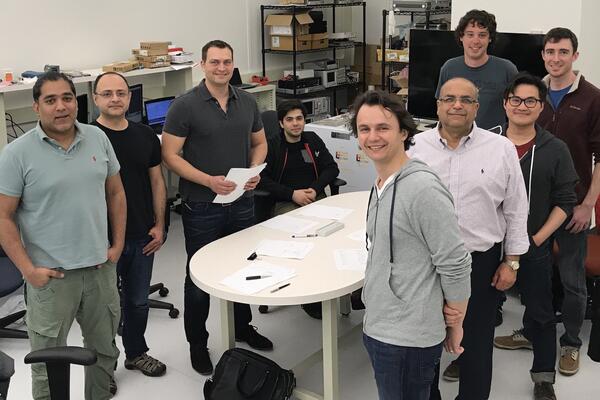
Read more
Local company aims to improve people’s cognitive wellness with smart glasses
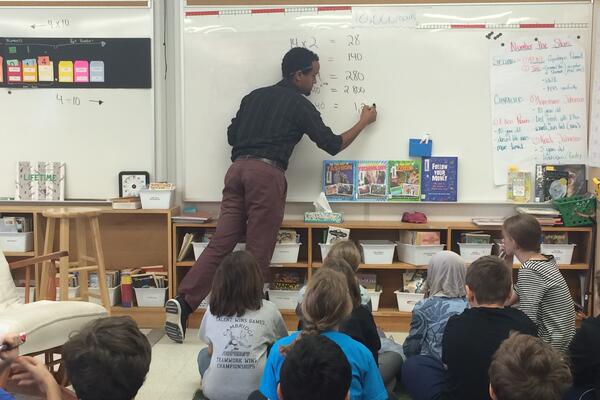
Read more
The new ESQ Kids on Campus program empowers children to realize their potential
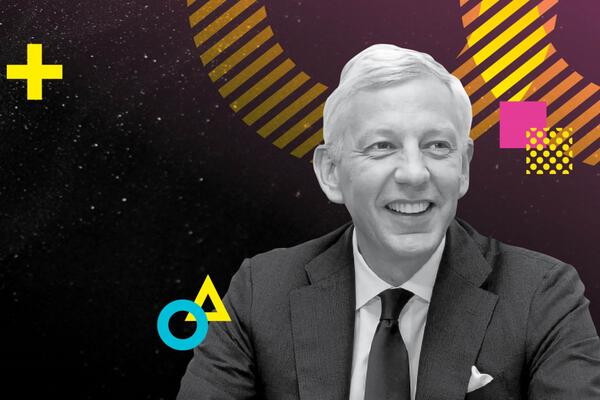
Read more
Waterloo chancellor Dominic Barton explores how we can create a more prosperous future in a new podcast
The University of Waterloo acknowledges that much of our work takes place on the traditional territory of the Neutral, Anishinaabeg and Haudenosaunee peoples. Our main campus is situated on the Haldimand Tract, the land granted to the Six Nations that includes six miles on each side of the Grand River. Our active work toward reconciliation takes place across our campuses through research, learning, teaching, and community building, and is co-ordinated within the Office of Indigenous Relations.